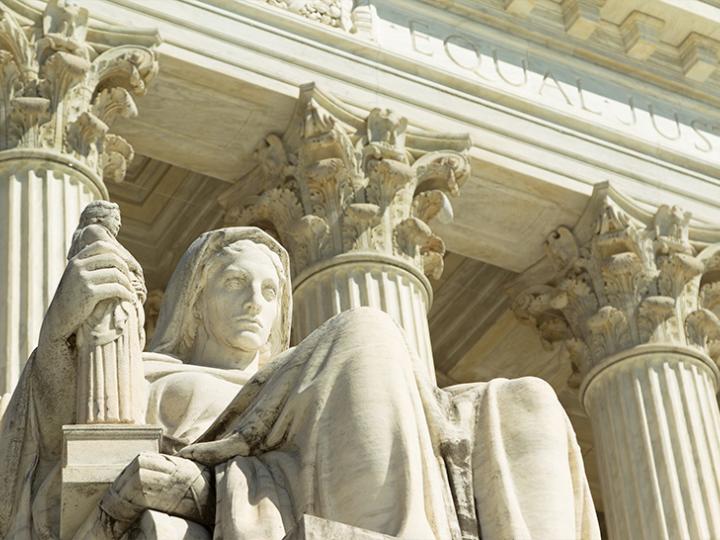In a concurring opinion delivered in Cameron v. EMW Women's Surgical Center, P.S.C., No. 20-601 (March 3, 2022), U.S. Supreme Court Associate Justice Clarence Thomas quoted the Restatement of the Law Second, Judgments, in support of his argument that the Kentucky attorney general was not jurisdictionally barred from intervening in an appeal from a district-court judgment to which his predecessor had agreed to be bound, because the Office of the Kentucky Attorney General was not a named party to the judgment and thus the attorney general could not notice an appeal from that judgment.
In that case, a clinic that performed abortions, and two of the clinic’s doctors, filed an action in federal court against, among others, the Kentucky attorney general and the cabinet secretary for Health and Family Services, seeking to enjoin the enforcement of Kentucky’s House Bill 454 (HB 454), which regulated abortion procedures known as dilation and evacuation. The plaintiffs agreed to the dismissal without prejudice of the claims against the attorney general, stipulating that “the attorney general reserved ‘all rights, claims, and defenses that might be available to him’ and ‘specifically reserved all rights, claims, and defenses relating to whether he is a proper party in this action and in any appeals arising out of this action.”’ The stipulation also provided “that any final judgment in this action concerning the constitutionality of HB 454 would be binding on the Office of the Attorney General, subject to any modification, reversal or vacation of the judgment on appeal.” After a bench trial, the U.S. District Court for the Western District of Kentucky found that HB 454 unconstitutionally burdened a woman’s right to an abortion, and issued a permanent injunction against the enforcement of the law. After the secretary filed a notice of appeal, a new attorney general was elected and a new secretary for Health and Family Services was appointed. The U.S. Court of Appeals for the Sixth Circuit affirmed the district court’s judgment. The secretary notified the attorney general’s office that he would not file a petition for rehearing en banc or a petition for a writ of certiorari, and the newly elected attorney general moved to withdraw as the secretary’s counsel and to intervene as a party on behalf of the Commonwealth. The attorney general filed a petition for rehearing en banc, and the panel denied the attorney general’s motion to intervene.
The U.S. Supreme Court reversed the Court of Appeals’ judgment and remanded, holding that the Court of Appeals erred by denying the attorney general’s motion to intervene. Associate Justice Samuel A. Alito, writing for the Court, rejected the respondents’ argument that the attorney general, as a non-party bound by the district court’s judgment, had to file a notice of appeal within the time prescribed by law, and thus his motion to intervene filed outside that time period had to be treated like an untimely notice of appeal. The Court explained that “no provision of law limits the jurisdiction of the courts of appeals in the way respondents suggest.” Furthermore, the Court “refuse[d] to adopt a categorical claims-processing rule that bars consideration of the attorney general’s motion.”
Justice Thomas wrote separately to provide another reason why the respondents erred in arguing that the Court of Appeals lacked jurisdiction to consider the attorney general’s motion to intervene. He explained that the Court rightly rejected the respondents’ argument that the attorney general was jurisdictionally barred from intervening based on his predecessor’s agreement in the stipulation to be bound by the district court’s final judgment, because the stipulation preserved the attorney general’s office’s right to participate in the appeal. In addition, Justice Thomas argued that Federal Rules of Appellate Procedure 3 and 4 “permit only ‘parties’ to appeal a district court judgment, and the attorney general was not a ‘party’ to the judgment after he was dismissed from the litigation.” As support for the change in the attorney general’s status as a “party,” Justice Thomas pointed to the case caption—which was modified following the dismissal of the attorney general to reflect the remaining properly named defendants—and explained, quoting Restatement of the Law Second, Judgments § 34, Reporter’s Note to Comment a, that, while case captions are not determinative, “they can be instructive, given that ‘the designation of persons as parties is usually made in the caption of the summons or complaint.”’ He rejected the respondents’ argument that the attorney general remained a “party” because his predecessor agreed the office would be bound by any final judgment in the action. Quoting Restatement of the Law Second, Judgments § 40, Justice Thomas noted that “when ‘[a] person agrees to be bound by the determination of issues in an action between others,’ we call application of claim or issue preclusion to that person ‘nonparty preclusion’ precisely because agreeing to be bound by a judgment does not alone make one a ‘party’ to it.”
